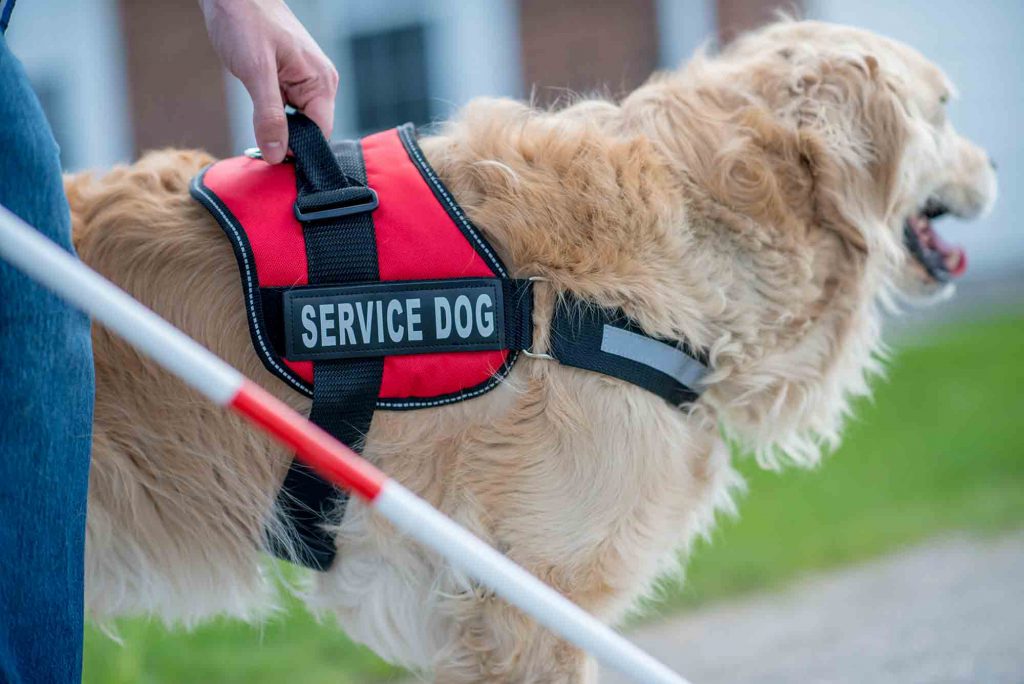Tightening the Leash on Fake Service Animals
 An estimated 50,000 Americans rely on their service dogs to help them complete the tasks necessary to get through the day. Service animals accompany their handlers everywhere, performing life-saving services and allowing them to live and function independently.
An estimated 50,000 Americans rely on their service dogs to help them complete the tasks necessary to get through the day. Service animals accompany their handlers everywhere, performing life-saving services and allowing them to live and function independently.
Taking your dog with you in public sounds pretty great, but it has a downside. The problem of fake service animals is on the rise, putting real working dogs and their handlers at risk.
Defining Features
Service, therapy, and emotional support animals have some defining characteristics:
- Service dog – A service dog is trained to perform specific duties for disabled handlers, such as guiding a visually impaired person, opening doors or retrieving objects for someone with mobility issues, or predicting an oncoming seizure or diabetic incident. The Americans with Disabilities Act states that service dogs must be allowed access to any business or public facility.
- Therapy animal – Therapy animals receive generalized training and provide people with social companionship and stress relief in a clinical setting, such as a hospital or nursing home. These animals must be friendly, calm, loving, and obedient in order to effectively bond with patients.
- Emotional support animal – Emotional support animals don’t receive any special training, but they can be an important part of a treatment plan by relieving feelings of anxiety or depression related to a medical or psychological issue. Like therapy animals, emotional support animals are not protected by law.
The Trouble with Fake Service Animals
The legal protection of service dogs, combined with the fact that there is no national registration or certification process for legitimate service animals, makes it easy to simply order a vest online and walk into a restaurant, subway, or other area that is usually off-limits to pets.
Trying to pass off an untrained pet as a service animal seriously threatens the validity and acceptance of true service dogs. Not only that, many fake service animals are untrained, and bringing them to public locations is to invite the risk of disruption, damage to property, and injury to the pet themselves or to other people or animals.
More than a Nuisance
The problem of fake service animals is serious, and legislators are taking notice. Twenty-one states have enacted laws aimed at cracking down on people trying to pass pets off as service animals, and more are sure to follow. Pet owners caught face fines, with the end goal being an increase in public awareness of the negative impact fake service animals have on society.
Do you have any questions or concerns about your pet? Don’t hesitate to contact your partners in pet care at The Whole Pet Vet Hospital and Wellness Center.
